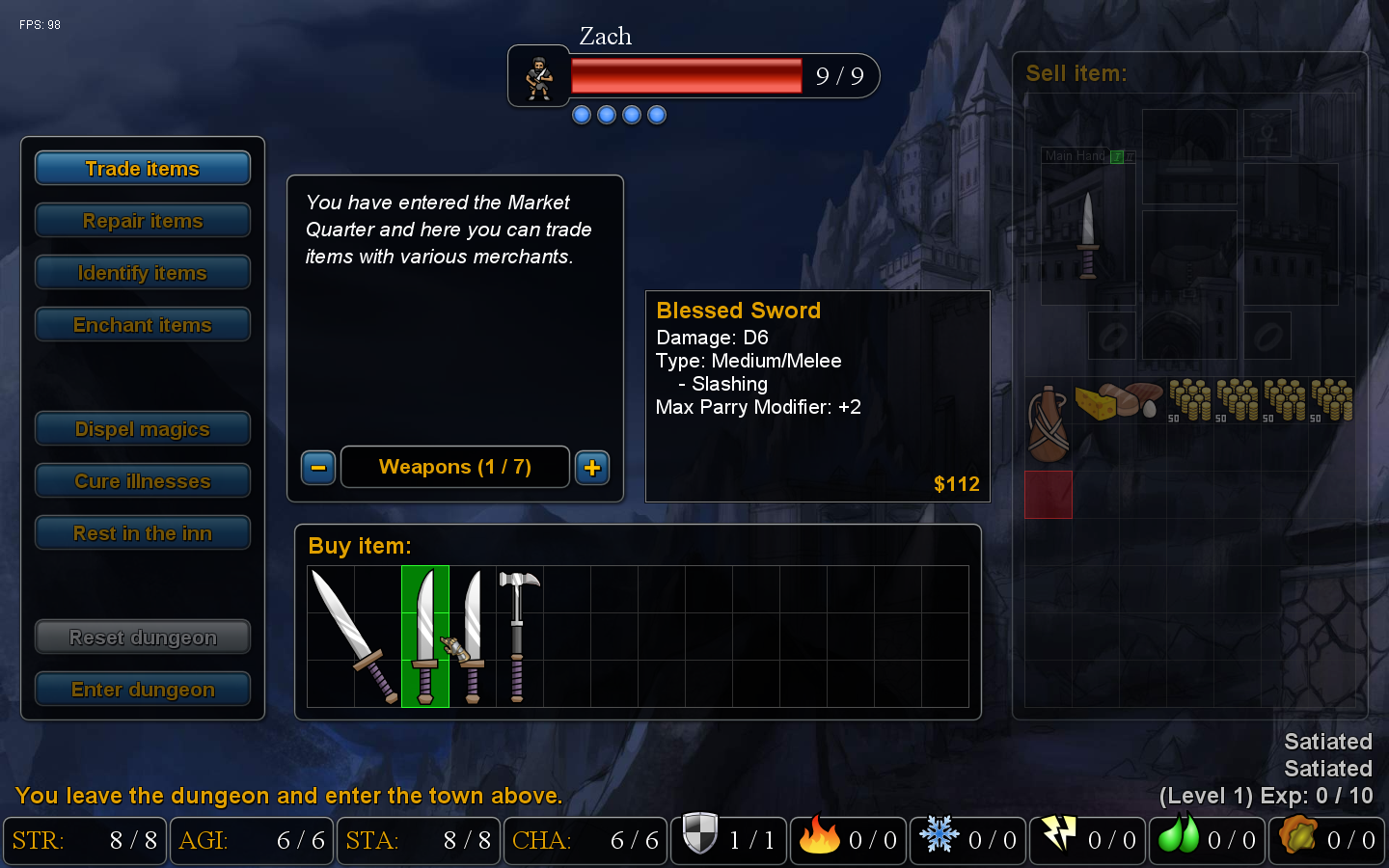Decoding Roguelike RPGs Your Guide to Procedural Dungeons and Permadeath

Ever wondered what lurks beneath the cryptic term "roguelike RPG"? It's more than just a buzzword; it's a thrilling and often punishing genre that's captivated gamers for decades. This article delves into the core elements that define a roguelike RPG, exploring its history, its unique gameplay loop, and why it continues to resonate with players seeking a true challenge.
Roguelike RPGs are characterized by their emphasis on procedural generation, permadeath, and turn-based combat. Procedural generation means that the game's levels, enemy placements, and item drops are randomized each time you play. Permadeath, arguably the most defining feature, means that when your character dies, they're gone for good. No respawns, no do-overs. This creates a high-stakes environment where every decision matters.
The term "roguelike" originates from the 1980 game Rogue, which established many of the genre's conventions. Rogue's influence is so profound that subsequent games with similar gameplay were dubbed "roguelikes." The genre has evolved significantly since then, branching out into various subgenres like "rogue-lites" which often incorporate elements like persistent upgrades or less punishing permadeath.
The appeal of roguelike RPG gameplay lies in its inherent replayability. Every playthrough is a unique experience, forcing players to adapt to unpredictable situations and develop new strategies. This constant challenge, combined with the sense of accomplishment that comes from overcoming difficult obstacles, is what keeps players coming back for more, even in the face of repeated defeats. Mastering a roguelike is a true test of skill and strategic thinking.
The core elements of the roguelike experience often include dungeon crawling, resource management, and strategic combat. You'll explore twisting, procedurally generated dungeons, scavenging for scarce resources, and engaging in turn-based battles that require careful planning and execution. Each decision, from which path to take to which item to equip, can have significant consequences.
One of the main issues with roguelikes can be their difficulty. The permadeath mechanic can be frustrating for new players, leading to a steep learning curve. However, this difficulty is often seen as a positive, as it fosters a sense of accomplishment and encourages players to learn from their mistakes.
Three key benefits of playing roguelikes are improved strategic thinking, enhanced adaptability, and a heightened sense of accomplishment. The constant need to adapt to new situations sharpens your strategic thinking, forcing you to think several steps ahead. Overcoming challenging encounters in a roguelike provides a deep sense of satisfaction that's rarely found in games with less punishing mechanics.
A simple example of a roguelike element is a procedurally generated dungeon. Each time you enter, the layout is different, presenting new challenges and opportunities. This could involve different enemy placements, trap locations, or even hidden treasure rooms.
Advantages and Disadvantages of Roguelike RPGs
| Advantages | Disadvantages |
|---|---|
| High replayability | Steep learning curve |
| Develops strategic thinking | Can be frustrating for some players |
| Sense of accomplishment | Time investment for each run |
Five popular examples of roguelike RPGs are Hades, The Binding of Isaac, Slay the Spire, Enter the Gungeon, and Dead Cells. These titles showcase the diversity within the genre, offering unique gameplay mechanics, art styles, and storylines.
Frequently Asked Questions about Roguelike RPGs:
1. What is permadeath? Permadeath means if your character dies, you start over from the beginning with a new character.
2. What is procedural generation? It's a method of randomly generating game content, ensuring each playthrough is different.
3. Are all roguelikes turn-based? No, many modern roguelikes feature real-time combat.
4. Are roguelikes hard? They can be challenging, but the difficulty often contributes to the sense of accomplishment.
5. What is a rogue-lite? A subgenre that often incorporates elements like persistent upgrades or less punishing permadeath.
6. Why are roguelikes popular? They offer high replayability and a unique sense of challenge.
7. Where can I find roguelike games? On various platforms like Steam, GOG, consoles, and mobile devices.
8. Are there any tips for playing roguelikes? Focus on resource management, learn enemy patterns, and don't be afraid to experiment.
One tip for succeeding in roguelikes is to embrace experimentation. Don't be afraid to try different builds, items, and strategies. Each run is a learning opportunity, even if it ends in failure. Learning from your mistakes is a crucial part of the roguelike experience.
In conclusion, roguelike RPGs offer a unique and challenging gaming experience. The combination of permadeath, procedural generation, and strategic gameplay creates a rewarding loop that encourages players to push their limits and adapt to unpredictable situations. While the difficulty can be intimidating, the sense of accomplishment derived from overcoming these challenges is unparalleled. From the humble beginnings of Rogue to the modern masterpieces like Hades, the genre continues to evolve and captivate players seeking a truly engaging experience. So, dive into the world of roguelikes, embrace the permadeath, and discover the thrill of conquering procedurally generated dungeons. You might just surprise yourself with what you're capable of.
Experience the toyota rav4 with leather comfort and durability redefined
Boost your jeep grand cherokees towing power
Falling in love with the dance exploring baile yo si me enamore













